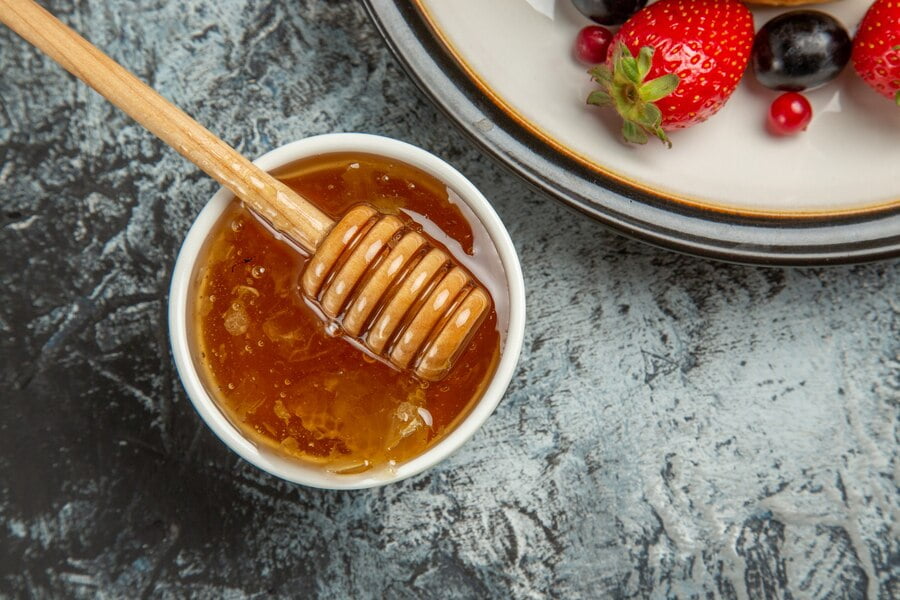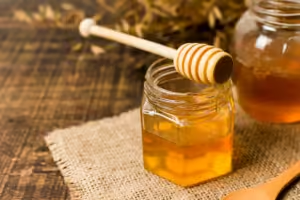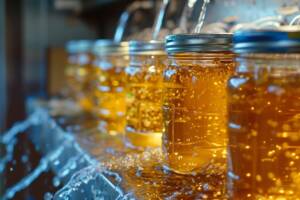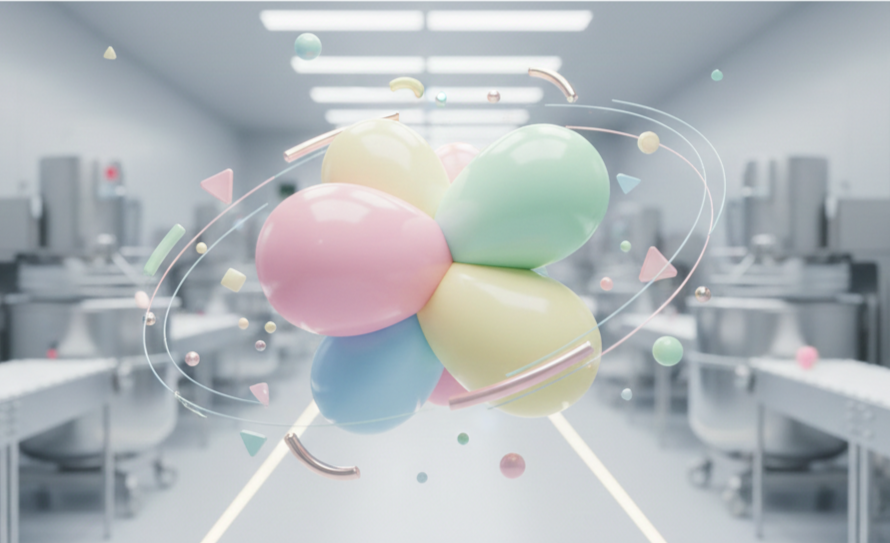
Honey is one of the most valuable and beneficial natural products, as it has countless health and beauty benefits. However, many consumers and producers face a common problem known as “honey crystallization”. This phenomenon may be a source of concern for some, as honey turns from its liquid state to a solid or granular form, which raises questions about its quality and safety.
In this article, we will review in detail the causes of the honey crystallization problem, the factors affecting it, and how to deal with this problem in effective ways.
What is the problem of honey crystallization?
The problem of honey crystallization is one of the natural phenomena that many consumers and honey producers face. This problem appears when liquid honey turns into a granular or solid form, which may raise concerns for some about the quality of honey. However, it is important to know that honey crystallization does not mean its spoilage or a decrease in its quality, but rather is a natural process that depends on various factors.
Why does honey crystallize?
Honey crystallization occurs as a result of the interaction between sugar and water inside honey. Honey is mainly composed of two types of sugar: glucose and fructose. When the percentage of glucose in honey is higher than fructose, the honey tends to crystallize more quickly. This reaction occurs when glucose molecules begin to form crystals within the honey, causing the honey to change from a liquid to a solid state.
Factors affecting honey crystallization
There are many factors that play a role in the problem of honey crystallization, including:
Temperature: Low temperatures accelerate the crystallization process. Honey is best stored at temperatures between 18-24 degrees Celsius to maintain its fluidity.
Honey composition: As mentioned earlier, the ratio of glucose to fructose determines how quickly honey crystallizes. Types of honey that contain high levels of glucose crystallize more quickly.
Honey purity: Pure natural honey crystallizes faster than blended or overly filtered honey, as the presence of fine particles such as pollen helps stimulate crystallization.
Humidity: If the water content in honey is low, honey tends to crystallize more quickly.
Does honey crystallization affect its quality?
Although the problem of honey crystallization may seem annoying to some, crystallization does not affect the quality or validity of honey. Crystallized honey retains all its nutritional values and health benefits. Crystallized honey can be returned to its liquid state by gently heating it in a water bath without exceeding 40 degrees Celsius to preserve its beneficial properties.
Health benefits of crystallized honey
Crystallized honey is no different in its health benefits than liquid honey. It contains vitamins, minerals and enzymes essential for the health of the body. Crystallized honey can be used in cooking or baking in the same way as liquid honey.
How to prevent honey crystallization
Although honey crystallization is a natural process, there are some ways to delay this phenomenon:
Storage at appropriate temperatures: It is preferable to store honey in a cool place but not too cold. The ideal temperature for storing honey is between 18 and 24 degrees Celsius.
Use airtight containers: External humidity can contribute to honey crystallization, so it is essential to store honey in airtight containers.
Heat honey properly: If honey crystallizes, it can be gently heated by placing the container in a warm water bath. It is preferable not to expose honey to very high temperatures to avoid losing its healthy properties.
The importance of using appropriate containers
Tightly sealed glass containers are the best choice for storing honey, as they prevent moisture from entering and maintain the quality of honey for long periods. It is also preferable not to use plastic containers, as they may affect the flavor of honey when stored for long periods.
Honey in the Food Industry
Honey is not only a natural food product that is preferred by consumers, but it is also an important ingredient in many food industries. Honey is used in the manufacture of many food products such as sweets, baked goods, natural drinks, and even medicines. The role of honey in these industries goes beyond its sweet taste, as it is also used as a natural preservative, flavor enhancer, and source of hydration.
Use of honey in the food industry
Baked goods and sweets: Honey is commonly used in the baking industry, as it adds a smooth texture and keeps the product fresh for longer. It also enhances the flavor and adds a touch of natural sweetness.
Healthy drinks: Honey is an essential ingredient in many natural drinks such as tea and energy-boosting drinks. Due to its health benefits, consumers prefer it as a natural alternative to refined sugar.
Cosmetics and skin care products: In addition to the food industry, honey is used in the cosmetics and skin care industry for its moisturizing and antibacterial properties
Challenges of using honey in industry
Despite the many benefits that honey offers to the food industry, there are some challenges that producers face when using honey in industrial products, including the problem of honey crystallization. Honey crystallization may negatively affect the production process and lead to a change in the texture of the final product.
The impact of crystallization on manufacturing
Disruption of production processes: When honey crystallizes, it becomes difficult to use it in industrial equipment that requires smooth and easy flow of materials. This may lead to delays in production processes or the need for additional heating processes.
Impact on the final appearance of the product: In some products, appearance plays a major role in their appeal to the consumer. Honey crystallization may lead to a change in texture or consistency, making the product less attractive from a marketing perspective
ProNano Food Industry Consulting Company provides advanced solutions to the problem of honey crystallization, based on the latest improvements in the field of honey production and storage. The company provides multiple consultations for the honey producer on how to facilitate the quality of honey and prevent crystallization using proven scientific methods.
We can also work on improving honey production and overcoming the crystallization problem through our websites or by directly contacting the specialized consulting team.
Read more about food safety and quality consultations



